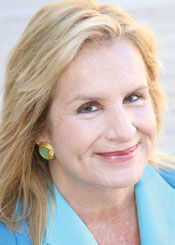
Some people apologize too much. They say they are sorry for having an opinion, entering a room, walking too fast, laughing out loud, causing minor spills, plus so much other trivial, shrinking minutiae that does not require chastisement.
For them, sorry is the easiest word. But does it have meaning?
Yet some folks — and you may know a few — never apologize. They skip those two words even for major hurtful transgressions, ongoing behaviors and cruel comments. They can bulldoze through daily life excusing their negligent actions as personality quirks, boldly carrying on convinced they have the right to behave as they dare. They proceed unashamed without consequence as if they have permission to act in any manner they please.
Beware. This can make for awkward holiday gatherings.
Tis the season for year-end closure and tidying up the calendar year, so it may be an ideal time to acknowledge consequence, and to make amends, offer a remedy for what may be broken.
This way there is no messy carry-over to next year. It’s like cleaning the closet, the garage, the basement or the fridge. Discard what is no longer useful. Maintain what is prized. And practice the art of forgiveness.
“Forgiveness is the exact opposite of vengeance, which acts in the form of re-acting against an original trespassing, whereby far from putting an end to the consequences of the first misdeed, everybody remains bound to the process, permitting the chain reaction contained in every action to take its unhindered course,” the late Hannah Arendt, 20th century philosopher and political theorist, wrote.
It’s a cycle that needs to be broken and reshaped.
To do that, the apology needs to be linked to responsibility. Words alone are not fodder for absolution. Words are just rhetoric without a link to action.
All of us have experience in our families of origin with transgressions. Raising our own families involves likely millions of apologies from all sides — some flippant and token, some heartfelt. When my three sons were young, there was so much tumbling, so many spontaneous altercations over nothing causing unintentional harm, that regrets and “I’m sorry” were frequent on the daily menu.
Now that they are adults, I am proud that the three of them accept accountability and move forward with integrity when they make mistakes that impact others.
Most religious traditions have scriptural practices and guidance for mercy, justice and atonement. They offer guidelines for restitution and repair. Forgiveness is a human imitation of the divine.
It may seem intuitive that forgiveness is good for you, and it is. Research shows acts of forgiveness contribute to overall physical and mental health and well-being. You feel better when you forgive.
I recently had an experience of misunderstanding a friend’s comments and was upset and hurt by what she said. I spent days feeling disregarded and dismissed, until she called to explain her intent. We resolved it easily and both of us feel better for it. Our friendship of three decades is unbroken.
Yet unfortunately, in a social climate fueled by podcasts and social media where there is a constant barrage of outrageous banter, we are bombarded by claims and cruelty disguised as free speech. There seems to be no remorse for attacking individuals — it appears that the more harsh the tirade, the more popular it becomes. It makes you feel unsafe and unprotected.
Growing up in River Forest in the 1960s and 70s, our parents maintained — OK, they mandated — the expectation that my five siblings and I get along. Fighting was not tolerated.
As a result, our sibling squabbles were usually quite petty, over who drank the last Pepsi, borrowed clothes without permission or left their dishes in the sink. There was nothing severe that would cause a real rift.
Even now, my four siblings are still my best friends. I rely on them deeply and we offer each other sincere support, understanding and grace. I can’t imagine having a fight or feuding with any of them. We know and understand each other well. They make my life better.
Tumbling into the close of the year, I contend an apology can be the best gift ever.



(0) comments
Welcome to the discussion.
Log In
Keep it Clean. Please avoid obscene, vulgar, lewd, racist or sexually-oriented language.
PLEASE TURN OFF YOUR CAPS LOCK.
Don't Threaten. Threats of harming another person will not be tolerated.
Be Truthful. Don't knowingly lie about anyone or anything.
Be Nice. No racism, sexism or any sort of -ism that is degrading to another person.
Be Proactive. Use the 'Report' link on each comment to let us know of abusive posts.
Share with Us. We'd love to hear eyewitness accounts, the history behind an article.